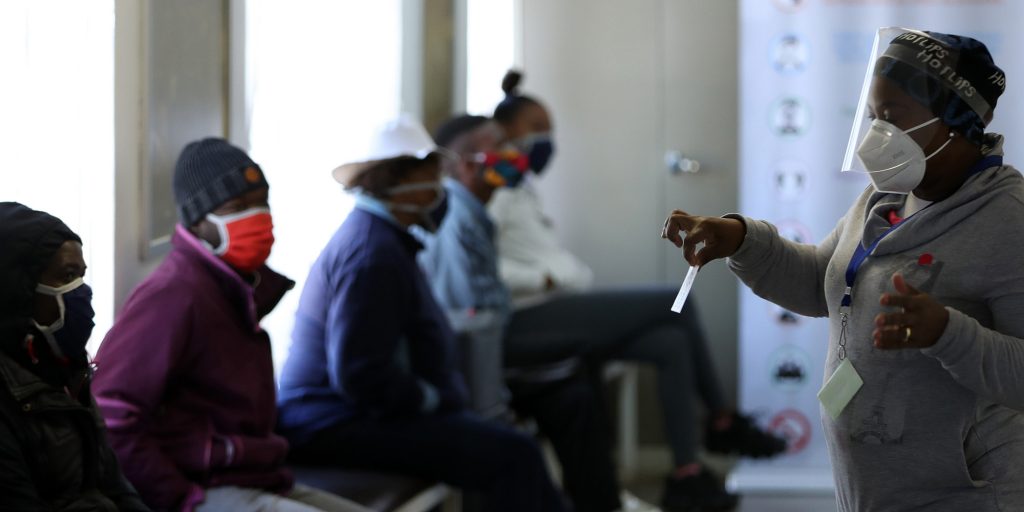It will take the average professional nurse 65 years to earn the annual salary of a chief executive officer of one of the private hospital groups in South Africa.
This is according to Oxfam report The Right to Dignified Healthcare Work, a Right to Dignified Healthcare for All. Oxfam South Africa collaborated with a number of organisations and trade unions, including Young Nurses Indaba Trade Union (YNITU), to lobby for improvements to the South African health sector.
“We have found a triple treat to dignified health work and therefore dignified health care for all, a gender-blind austerity government and declining public spending, a profit-seeking private health sector and a health system comprised of private and public employers that use the gabs in labour laws and practice to further exploit health workers and community health care workers,” said Basani Baloyi, Inequality Programme Head at Oxfam South Africa.

We have found a triple treat to dignified health work
Budget cuts in the public health sector were ongoing since 2012, leading to chronic understaffing. The report makes it clear that the private health care sector “prioritizes profits and is self-serving”. From 2016 until 2019, Netcare, Life and Mediclinic group rewarded their shareholders with a combined shareholder bonanza payout of R19 billion while their combined profits were R11 billion, which means they paid out more to shareholder payouts than they made in profits. In 2017, Netcare paid out R1.3 billion even when they made losses that year.
Whilst the private healthcare sector accounts for almost half of South Africa’s total healthcare expenditure, only 16.4% of the population is covered by private medical insurance. 73% of White people have medical coverage and only 10% for Black Africans have medical coverage. The vast majority of South African citizens rely on a public health sector that is not equitably resourced.
South African Research Chair on the Health Workforce and University of the Witwatersrand professor, Laeti tia Rispel, describes the report as “sobering and depressing”.
“The right to dignified healthcare work is a sobering account of the precarious work and appalling working conditions of front-line nurses and community health workers in South Africa, the majority of whom are black African womxn,” Rispel says.
“It is important to note that nursing, community care workers doing unpaid health work are culturally and socially viewed as feminine sectors, therefore, women in general and black women, in particular, are over-represented in the sector owned to the system of patriarchy and racism,” Basani Baloyi says.
The report also highlights the weakness or gaps in labour laws, coupled with that is implementation failure that is exacerbated by experiences and realities like the gender-based violence, issues of transport and the unsafe environment they work in, especially for community health workers that find themselves in communities where crime is rife. Working hours, low pay, gender-based violence, transport and safety, labour brokering, gender equity and universal healthcare are some of the biggest challenges faced by the healthcare workers.
“Job insecurity as an agency nurse is a huge problem, we do not have any benefits, I do not have medical aid, If I get sick it means no work, no pay for me and I have no maternity leave. Even if I die my family will not get anything,” says Lebohang Negukhula, a professional nurse and a member of the Young Nurses Indaba Trade Union. The report highlights how agency workers in Namibia are afforded equal treatment from the start of employment without any waiting periods which it says should serve as the strongest benchmark for South Africa.
Unfortunately labour is seen as a cost to be reduced rather than as a right to be enforced
Namibia’s regulatory regime of agency work is far more progressive than that of South Africa, according to the report. In 2007, the Namibian Supreme Court of Appeal ruled that denying the right to economic freedom is unconstitutional. South Africa’s and Namibia’s regulations of agency work are similar in that both provide for the equal treatment principle. This means that an agency worker must have protections and benefits equal to those of a permanently employed worker. South Africa allows the agency worker to be employed by the client for three months before equal terms and conditions are required, an issue the report says may create an additional issue of rotational schemes to avoid compliance. In Namibia’s case, the equal treatment principle operates from day one of employment, thereby strengthening agency worker protections.
“Unfortunately labour is seen as a cost to be reduced rather than as a right to be enforced. We have seen the public sector increase the amount of outsourcing and rise to about 5% in goods services. In the public sector, we see about 24-29% of their count being agency workers,” Ruth Mhlanga, Private Sector Policy Advisor for Oxfam Great Britain.
To address the key barriers to decent work that female healthcare workers face, the report recommends that “transparency and accountable health system should prevail, create conditions for decent work and work towards a living wage, increase government public spending on healthcare, reduce inhumane working hours for healthcare workers, there should be secure contracts, recognize the burden of unpaid care work and end violence against womxn by those in power”.
“This is crucial as this will not only improve the lives of millions of womxn working in the healthcare sector but will lead to better and higher quality healthcare in South Africa,” according to the report.

